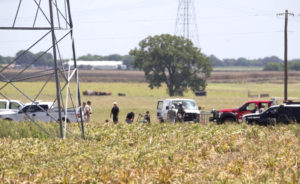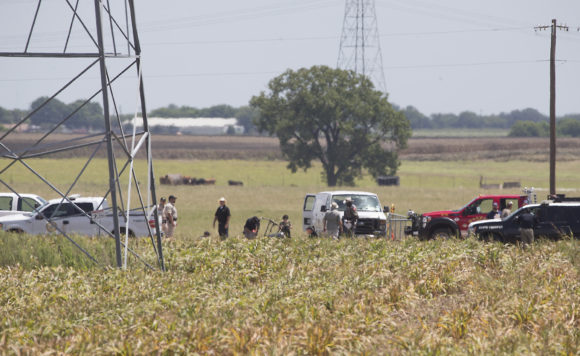The National Transportation Safety Board has called on the Federal Aviation Administration to remove its medical certification exemption for commercial balloon operators, saying it contributed to a July 30, 2016, balloon crash in Texas that killed 15 passengers and the pilot.
The board on Oct. 17 found that the balloon pilot’s “pattern of poor decision-making” led to the balloon striking power lines and then crashing to the ground. Contributing to the accident were Alfred “Skip” Nichols’ impairing medical conditions and medications that likely affected his decision-making.
“The pilot’s poor decisions were his and his alone,” said NTSB Chairman Robert L. Sumwalt during the board meeting. “But other decisions within government, dating back decades, enabled his poor decision to fly with impairing medical conditions, while using medications that should have grounded him.”
Investigators found that depression, attention deficit hyperactivity disorder and the combined effects of multiple central nervous system-impairing drugs likely affected the pilot’s ability to make safe decisions.

The investigation also found that the balloon pilot should have cancelled the sight-seeing flight because of deteriorating weather conditions and, once in the air, should not have climbed above the clouds. The pilot’s decision to then attempt to land in reduced visibility conditions diminished his ability to see and avoid obstacles and resulted in the balloon impacting power lines.
Nichols had previously operated balloon-ride companies in Missouri and Illinois. Numerous customer complaints against Nichols’s companies were reported in those states dating back to 1997. Customers told the Better Business Bureau that their rides would get canceled at the last minute and their fees never refunded, according to the Associated Press.
Currently, the FAA exempts commercial balloon pilots from medical certification. The AP has reported that balloon pilots currently are only required to write a statement certifying that they have “no medical defect” that would limit their ability to pilot a balloon.
This eliminates the potential opportunity for an aviation medical examiner to identify the pilot’s potentially impairing medical conditions and medications. Had a medical certificate been required, the FAA would also have had an opportunity to identify the pilot’s history of drug- and alcohol-related traffic offenses, the NTSB said.
The investigation also found fault with the FAA’s oversight of commercial balloon operators.
The board has approved two recommendations to the FAA. It called on the agency to remove the medical certificate exemption for commercial balloon operators and urged it to find ways to better provide oversight of balloon operators.
“Today’s recommendations, if acted on, will help to bring the safety standards closer to those that apply to powered flight,” Sumwalt said. “Balloon pilots, their passengers, and their passengers’ loved ones deserve no less.”
The abstract of the NTSB’s final report, that includes the findings, probable cause and safety recommendations is available online at https://go.usa.gov/xnCer. The final report will be publicly released in the next several days.
Source: NTSB, Associated Press
Related:
Was this article valuable?
Here are more articles you may enjoy.



 Florida Regulators Crack the Whip on Auto Warranty Firm, Fake Certificates of Insurance
Florida Regulators Crack the Whip on Auto Warranty Firm, Fake Certificates of Insurance  Judge Tosses Buffalo Wild Wings Lawsuit That Has ‘No Meat on Its Bones’
Judge Tosses Buffalo Wild Wings Lawsuit That Has ‘No Meat on Its Bones’  State Farm Adjuster’s Opinion Does Not Override Policy Exclusion in MS Sewage Backup
State Farm Adjuster’s Opinion Does Not Override Policy Exclusion in MS Sewage Backup  World’s Growing Civil Unrest Has an Insurance Sting
World’s Growing Civil Unrest Has an Insurance Sting 

